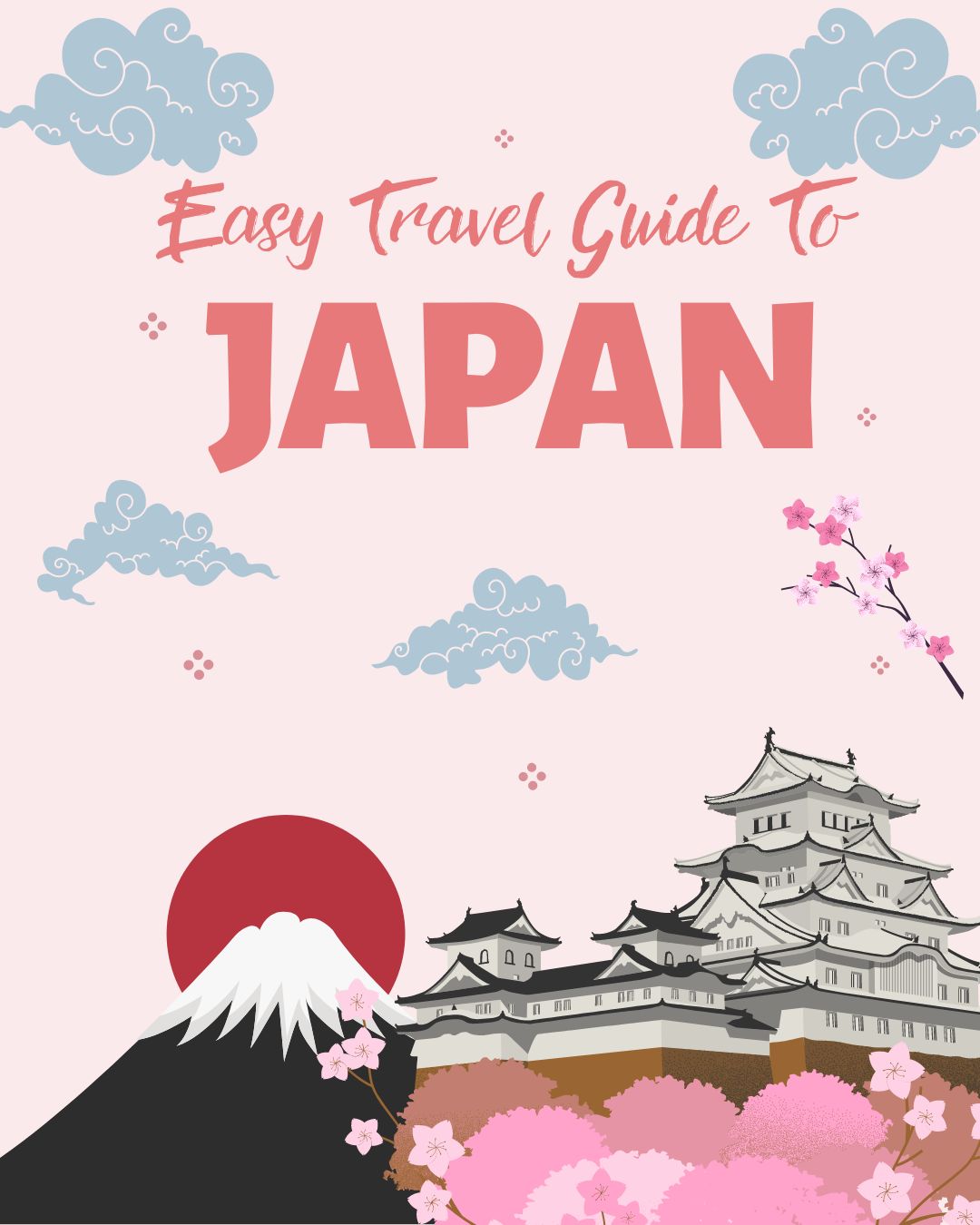This week’s guest post comes from my handsome successor, Nick, who took my place in Okinawa. He just started his blog, so be sure to show him some love! You’ll really enjoy Nomadic Nick because he’s doing what I should have done when I first moved—properly documenting his experiences and giving advice on his travels. Nick once lived in Spain and he gives his input on which country is better liveability-wise.
I’ve only been in Japan four months on JET but I’ve been wanting to write a comparison between life as a teacher abroad in Spain versus Japan. These are two incredibly different countries, but the jobs are almost identical. The points that I have chosen to discuss are: liveability (salary, cost of living, commodities, etc), adaptability, and fun.
Blog Posts You Might Like
- 25 Things No One Tells You About Teaching English in South Korea
- How To Get a Job Teaching English in Japan
- How To Get a Job Teaching English in Korea
- The Ultimate Guide To Solo Female Travel in Japan
- The Ultimate Guide To Solo Female Travel in Korea
Recommended Spain Tours
Klook.comMy Beginnings in Spain
I lived in Spain from 2010-2012 as an Auxiliar de conversación (Cultural Ambassador) when the country was suffering heavily from the 2008 economic crisis. I won’t ever forget when I saw a child begging for a piece of gum from a gum ball machine and her mother replied “Que no! Estamos en crisis” which means, “No way, we are in a crisis.”
The economy tanked all across Europe, but Spain was one of the places where you felt it the worst. With all of that said, foreign teachers in Spain were not paid badly and we were actually lucky to even have jobs. Many of my native friends stayed in school and collected money from the government because there were simply no jobs to be found. By then, thousands of young Spaniards flocked to Madrid, Barcelona, or other European countries.
Salary, Fun, and Cost of Living in Spain
I lived one year in the north central city of Valladolid, where I was paid 700 Euros a month. How can anyone survive off a measly $900 (exchange rate at the time) a month you ask? Short answer: private classes. Since we only worked 12-16 hours a week there was plenty of free time to earn money by other means. Most of us darted from house to house after school to teach anyone from screaming children to jaded adults that wanted or needed to learn English. We charged premium for being native speakers; I wouldn’t give a class unless they paid at least 20 Euros per hour. I could usually bring an extra 100 Euros a week mostly used for extracurricular activities i.e. booze and nightlife. Also, if you were outside Madrid and Barcelona rent was hella cheap in Spain. I spent about 250 Euros per month or less for my bedroom in Valladolid. Of course I had 2 roommates, but it wasn’t a bad deal.
Once I moved to Madrid for my second year, my salary increased to a whopping 1000 Euros! I thought I hit the jackpot, but then I realized my rent went up, food was more expensive, and transportation (though amazing) was not as cheap as other cities. Unfortunately, we were poor in just like many of the natives. Living a minimalist lifestyle because you have to is humbling and I learned a lot from my time spent there.
My Beginnings in Japan
Life on the JET program as one friend put it is like “riding the gravy train.” One of the reasons I applied to JET and took the job was because of the salary. I know that’s not the best reason to move and teach abroad, but I already experienced the poor teacher abroad deal so I wasn’t looking for that kind of experience this time around. I wanted to to travel and save. None of us are rich here in Japan, but we are not struggling.

Salary, Fun, and Cost of Living in Okinawa
Many JETs are able to send money back home to pay bills, student loans, etc. Everyone has their own apartment; I pay around 44,000 yen a month ($370) and have plenty of space for my liking. Japanese apartments are small, but I lived in Europe so it’s nothing new to me. Fruits and vegetables are expensive here in Okinawa, but if you really want to buy that mini pack of 600 yen ($5) strawberries you can do it and you won’t feel it too much. If you are a genki gaijin (happy foreigner), you can eat at local restaurants for under 1000 yen. Most first-year JETs make around 280,000 yen ($2,300) per month and you get a slight raise each year you re-contract. Americans are tax exempt in Japan for the first two years. To me, life in Okinawa seems much cheaper compared to life in America, so I live very comfortably, but I’m frugal nonetheless.
Related: JET Versus GEPIK
Winner: Japan
It was not really a contest in this category. You make more money in Japan so your standard of living is higher. I hope other countries around the world see the value of native English speakers, but for now if you want to make money, Asia is where it’s at.
Please visit nomadicnick.com to read more about Spain versus Japan and find out the overall winner! If you fancy some pictures, check out his Instagram nomadicnicktravel.
Nick is originally from Mississippi, but don’t hold that against him. He has taught English in Madrid, Spain and worked in Austin, TX as a banker. He is a true nomad, never spending more than three years in one place. You can usually find him scouring the internet for cheap flights, exotic locations, wonders of the universe, and how to get into grad school.


Japan Travel Guide E-Book
Planning on traveling to Japan?
Enter your name and email address and click the button below to receive your Easy Japan Travel Guide so you can travel like a local!













Interesting read.
I remember reading about the different places to teach ESL.
I always remember the asian countries paying the most money.
I think at that time Japan, but Korea is quite good too. I’m not sure if there is a huge difference, but I also know that Korea is a cheaper place to live so it might work out to be similar.
Europe is always super expensive to travel and work. Before the yen dropped, I was making bank in Japan and it was kind of nice. Now that the yen is garbage, I feel more financially secure in Korea because it’s cheaper.
Right! Nice, also the housing is nice too. Pay key money and get it back at the end as if you used nothing. Then in actuality the money spent is quite small for housing too. Which is awesome.
You can bank quite a bit of money, if you’re aiming to here.
I’m hoping to get a bit of money back! 😉 Gotta love Korea and how cheap it is to live here!
Really interesting article, I have taught in China but am interested in maybe trying Japan. Nice to know it’s not as scarily expensive as you might think!!
Jess, Nick lives in Okinawa which is the cheapest and poorest prefecture in Japan. You definitely have to do a pro and con list with wherever you go!
Very interesting insights. I can see that both Spain and Japan had their own specific ways and methodologies. but eventually, whether you get satisfaction out of the work is all that matters. i want to do volunteer teaching when I retire from my full time job. I will bookmark your post for future reference.